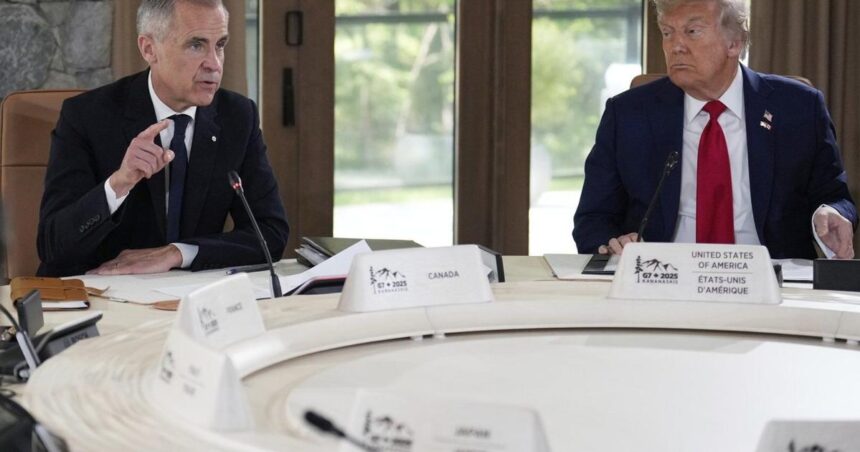In a high-stakes diplomatic reset, Canadian and American officials have restarted crucial trade negotiations this week, following months of escalating tensions over Canada’s proposed digital services tax. The renewed talks signal a potential thaw in relations between the two largest trading partners as both sides seek to avoid a damaging trade conflict that could reverberate throughout North American supply chains.
“We’re committed to finding a mutually beneficial solution,” said Canadian Finance Minister Chrystia Freeland in Ottawa yesterday. “While we maintain our sovereign right to implement tax policies that ensure digital giants pay their fair share in Canada, we recognize the importance of our trading relationship with the United States.”
The dispute centers on Canada’s Digital Services Tax (DST), which aims to collect 3% on revenue generated by tech giants from Canadian users when they sell online advertising or earn money from user data. The tax would primarily affect major American companies like Google, Amazon, and Facebook, which the Canadian government argues have benefited extensively from Canadian consumers while contributing minimally to the tax base.
American officials have pushed back forcefully, characterizing the tax as discriminatory against U.S. companies. U.S. Trade Representative Katherine Tai previously warned that the measure could trigger retaliatory tariffs under Section 301 of the U.S. Trade Act, potentially affecting billions in Canadian exports.
“These talks represent our continued commitment to resolving trade disagreements through dialogue rather than punitive measures,” said a senior USTR official who requested anonymity because they weren’t authorized to speak publicly. “But make no mistake, we have serious concerns about the precedent this tax would set.”
The timing of these renewed negotiations coincides with broader international efforts through the OECD to establish a global minimum corporate tax framework. Both countries had previously agreed to pause unilateral digital tax measures while multilateral talks progressed, but Canada’s decision to move forward independently sparked Washington’s ire.
Economic analysts suggest the stakes couldn’t be higher. “With approximately $2.6 billion CAD in annual revenue targeted by this tax, and potential retaliatory tariffs that could affect up to $10 billion in Canadian exports, neither side can afford a prolonged dispute,” explained Dr. Marina Chen, economist at the University of Toronto’s Rotman School of Management.
Canadian technology industry groups have expressed mixed reactions. While some support efforts to level the playing field against tech giants, others worry about possible repercussions for Canadian digital companies with U.S. operations.
“The government needs to ensure any tax doesn’t inadvertently harm Canadian innovation while addressing legitimate concerns about tax fairness,” said Michael Geist, Canada Research Chair in Internet and E-commerce Law at the University of Ottawa.
Sources close to the negotiations indicate that a compromise might involve Canada modifying implementation timelines or adjustment mechanisms that would align with eventual global standards, while the U.S. could offer assurances against immediate retaliatory measures.
The talks come at a particularly sensitive moment, with both countries facing economic pressures from inflation and supply chain disruptions, while the broader Canada-U.S. relationship navigates challenges on multiple fronts including energy policy, defense spending, and approaches to China.
As citizens on both sides of the world’s longest undefended border watch these negotiations unfold, a fundamental question remains: In an increasingly digital global economy, can traditional allies find a balance between national tax sovereignty and the interconnected nature of their economies without undermining decades of economic integration?


















